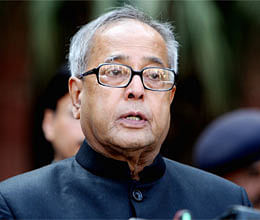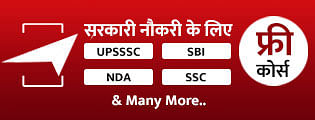
President Pranab Mukherjee will inaugurate the 'Mother Language Festival' in New Delhi May 19 to commemorate the 11 language martyrs killed in police firing in Assam in 1961, an official said here Saturday.
On May 19, 1961, eleven youths, including a women had become martyrs in a police firing at Silchar railway station in southern Assam when they took part in the language movement demanding recognition of Bengali as their mother tongue and an official language in Assam.
"President gave his consent to inaugurate the 'Mother Language Festival' in New Delhi May 19 when... poet and former Tripura... minister Anil Sarkar met... (Mukherjee) in the national capital Friday," a statement of the Tripura Matribhasha (mother language) Mission said.
Subsequently, in 1972, 1986 and in 1996, four more people were shot dead in Silchar when police opened fire on the people of the movement.
The statement also said that Sarkar, now the vice-chairman of the Tripura planning board, has also urged the president to take appropriate steps to celebrate the International Mother Language Day on Feb 21 across the country through the Sahitya Akademi, an autonomous organisation promoting literary activities in the country.
February 21 was first declared a special day for celebrating linguistic and cultural diversity by Unesco in 1999.
On Feb 21 each year, Bangladesh remembers the students who were killed when they demanded introduction of Bangla as state language while the country was still part of Pakistan in 1952.
The International Mother Language Day had also been celebrated every year on Feb 21 in various parts of India, specially in West Bengal, Assam, Tripura.
Bangladesh observes Feb 21 as "Martyrs' Day" to commemorate the killing of Salam, Barkat, Rafiq, Jabbar and a few other brave men of that country killed in police firing on this day in 1952 when thousands of students moved in a procession from the Dhaka University campus, breaching police barriers, demanding recognition of Bangla as a state language of the then undivided Pakistan (now Bangladesh).
On May 19, 1961, eleven youths, including a women had become martyrs in a police firing at Silchar railway station in southern Assam when they took part in the language movement demanding recognition of Bengali as their mother tongue and an official language in Assam.
"President gave his consent to inaugurate the 'Mother Language Festival' in New Delhi May 19 when... poet and former Tripura... minister Anil Sarkar met... (Mukherjee) in the national capital Friday," a statement of the Tripura Matribhasha (mother language) Mission said.
Subsequently, in 1972, 1986 and in 1996, four more people were shot dead in Silchar when police opened fire on the people of the movement.
The statement also said that Sarkar, now the vice-chairman of the Tripura planning board, has also urged the president to take appropriate steps to celebrate the International Mother Language Day on Feb 21 across the country through the Sahitya Akademi, an autonomous organisation promoting literary activities in the country.
February 21 was first declared a special day for celebrating linguistic and cultural diversity by Unesco in 1999.
On Feb 21 each year, Bangladesh remembers the students who were killed when they demanded introduction of Bangla as state language while the country was still part of Pakistan in 1952.
The International Mother Language Day had also been celebrated every year on Feb 21 in various parts of India, specially in West Bengal, Assam, Tripura.
Bangladesh observes Feb 21 as "Martyrs' Day" to commemorate the killing of Salam, Barkat, Rafiq, Jabbar and a few other brave men of that country killed in police firing on this day in 1952 when thousands of students moved in a procession from the Dhaka University campus, breaching police barriers, demanding recognition of Bangla as a state language of the then undivided Pakistan (now Bangladesh).










